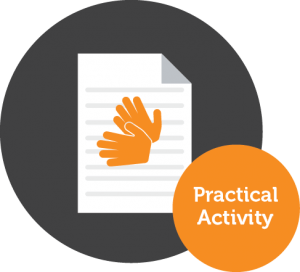
![]()
Businesses that prepare or sell food by retail such as convenience stores, delicatessens, grocers, hotels, retail markets & stalls, restaurants, cafes, takeaway and fast food outlets, supermarkets.
-
Use hygienic practices for food safety (SITXFSA005)
-
Participate in safe food handling practices (SITXFSA006)
These units are Nationally Recognised.

Have Questions?
Please submit a request using the Contact Form on our Support Centre
Office hours: Mon-Fri, 9am – 4pm EST
P: 07 3289 1347
Visit our FAQs section
New South Wales RESIDENTS
The NSW Food Authority has a requirement for a certificate to be issued in the New South Wales Food Authority format.
WHAT IS A FOOD SAFETY SUPERVISOR AND WHY ARE THEY IMPORTANT
A food safety supervisor is a person who has advanced food safety skills and knowledge and must have the authority to supervise and give directions about matters relating to food safety to people who handle food in a food business. They have an important role in sharing skills and knowledge, and improving awareness of what can happen if food is unsafe – that is, foodborne illness and injury and its impacts. Therefore, it is their responsibility to make sure the business is handling food safely.
WHO CAN BE A FOOD SAFETY SUPERVISOR
Every licensed food business must have at least one food safety supervisor to ensure food is being handled safely.
A food safety supervisor might be the business owner, the licensee, a manager, an employee or an external contractor. A food safety supervisor must be a person who is reasonably available to advise and supervise each food handler at a food business on a day-to-day basis. If your food business is large, with extended hours or shift work, there may be the need to have more than one food safety supervisor.
RESPONSIBILITIES OF A FOOD SAFETY SUPERVISOR
A food safety supervisor must:
- know how to recognise potential food safety hazards of the business and ensure the risks are prevented or managed
- have skills and knowledge of food safety matters that are relevant to the business and share skills and knowledge to improve awareness of foodborne illness
- have the authority to supervise and give directions about food safety matters to other food handlers at the business
- help create a positive food safety culture, where food safety is a top priority
- be reasonably available to be contacted while the food business is operating by
- any food handler at the food business
- the local government that licensed the food business.
HOW OFTEN IS TRAINING REQUIRED
A food safety supervisor certificate is valid for five years. The certification will need to show that the participant has successfully completed the required units of competency.
A complete course will need to be repeated every five years for category one and category two food businesses. Food Safety Australia offers the complete course at a discounted price for those who have received the qualification previously.
FOR BUSINESS OWNERS AND MANAGERS
Managing food businesses, with multiple staff, operating for extended hours and across jurisdictions, can be complicated. Food safety competencies delivered and assessed by Food Safety Australia may be purchased centrally by you and kept on your Food Safety Australia account. Our shopping cart allows you to purchase multiple courses in one easy transaction. From there, you are able to allocate the courses you have purchased to the participants whom you require to complete the training.
State and Industry Requirements
As a matter of public health safety, state, territory and local authorities are responsible for ensuring food businesses are compliant with all food hygiene requirements in Australia. Our Nationally Recognised Food Safety Supervisor courses will meet your food safety compliance evidence requirements Australia wide. In the footer of our website pages, you will find Useful Links to all Australian state, territory and local authority Health Department websites so you can determine what rules apply to you in your area.
ARE YOU LOOKING TO RENEW YOUR FOOD SAFETY SUPERVISOR CERTIFICATE?
Please look at our recertification courses. Food Safety Australia offers the complete course at a discounted price for those who have received the qualification previously.
![]()
![]()

ONLINE MODULES
Each module of the food safety supervisor course will help you to achieve one of the required elements of competence.
You will be provided with a series of presentations and quizzes. Make sure you are completely comfortable with the presentation content before attempting the quiz, you may view them as many times as you feel necessary. You are required to achieve a grade of 100% for each of the six quizzes in this course and you are allowed up to three attempts for each quiz.
We also provide a PDF of student notes, which you can print out for ready reference whilst completing the course.
Workplace Observation
As well as completing the on-line quizzes satisfactorily, you will also complete and return a Workplace Observation. It is a requirement that you are able to demonstrate the application of the skills you have gained from the on-line course in a practical way in a commercial kitchen.
It is required that you have access to a food workplace (either as an employee or a volunteer). This food workplace should:
- Be an operational commercial food preparation area, bar or kitchen with the fixtures, large and small equipment and workplace documentation defined in the Assessment ; can be a real industry workplace simulated industry environment such as a training kitchen servicing customers
- Have real food ingredients and food items
- Be fully equipped for food preparation (eg. a commercial kitchen, catering production line or food preparation area of a food outlet)
The Workplace Observation can be made by anyone you are working alongside providing they are in the position to make valid observations of your performance. The observer should meet the following requirements:
1. Have 2 years or more experience in a food handling environment in a supervisory role AND either
a) A current Australian Food Safety certificate (eg. Food Handlers Certificate or Food Safety Supervisor)
or
b) A qualification that meets the requirements of Food Handling safety (eg. Commercial Cookery or hospitality qualification or relevant higher education qualification
2. Be prepared to observe your activity in the workplace
3. Be prepared to be contacted by a Food Safety Australia assessor to confirm the Observer information provided.
If you are not currently working within the industry and do not have immediate access to an operational commercial kitchen, here are a few options:
- If you have worked in the food industry before, then you can have a past manager or co-worker complete the form based on past observations (no more than 12 months ago)
- If you have a friend or family member employed in the food industry, they can also make observations
- You can also speak to your local council and ask for a list of food-based charities that you can volunteer for. Many of these organisations deal with food and many of the regular volunteers are able to sign off on your observation report
WORKPLACE ASSIGNMENT
The practical activity is a brief knowledge based assignment, where you demonstrate the application of your learning to a workplace situation. Food Safety Australia is able to structure this activity, to suit participants not yet employed in a working food environment.







